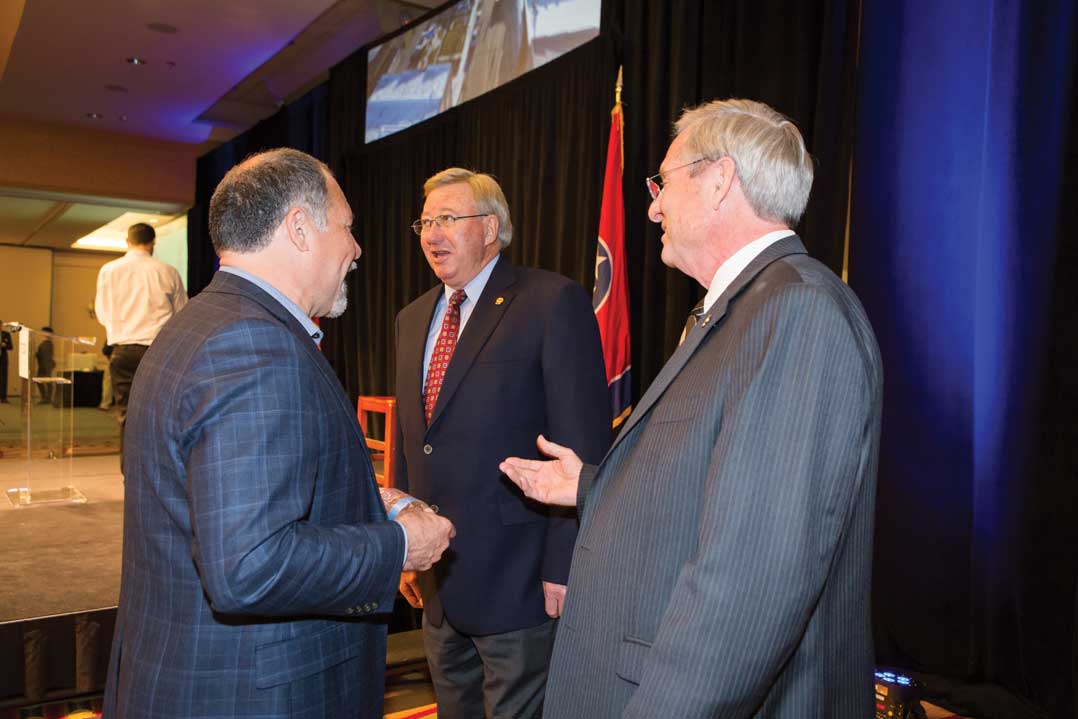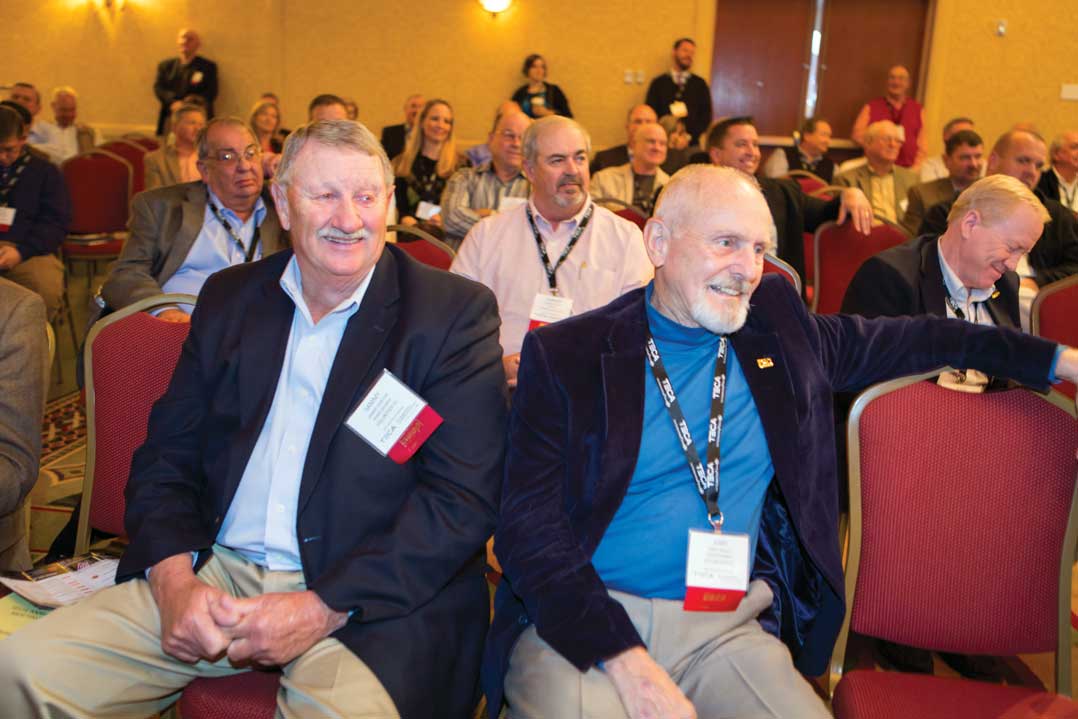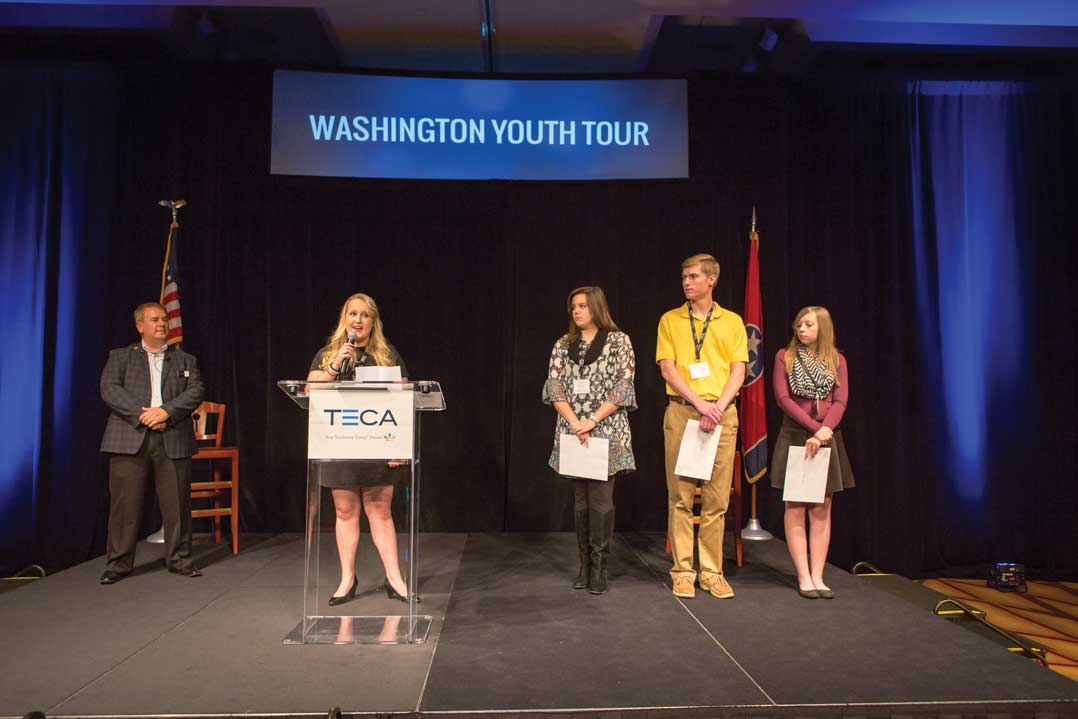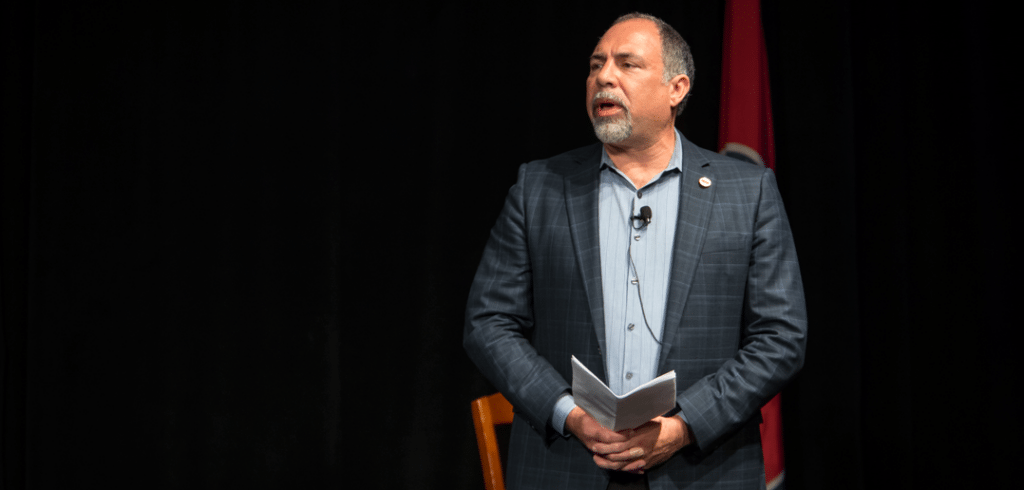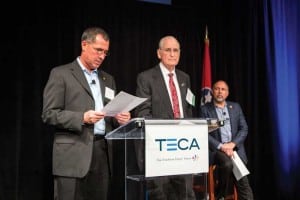
Just before Thanksgiving, co-op leaders from across the state met in Nashville to review the accomplishments of our cooperatives last year and make plans for the coming year.
The theme we adopted for 2016? “Small towns, big ideas.”
That’s an appropriate phrase to describe the character of the towns across the state served by Tennessee’s electric cooperatives, communities like Linden, Lascassas, Red Boiling Springs and Henderson. Those aren’t exactly population centers, but everything doesn’t have to happen in Nashville, Memphis, Chattanooga or Knoxville.
Despite the size and explosive growth in Tennessee’s major cities, the communities we seve are home to more than 2.5 million people. Looking at the numbers, Tennessee’s electric cooperatives serve 71 percent of the state’s landmass.

We all make choices on where we live. For some, the wide-open spaces mean freedom and room to do what you want. Others prefer to live in closer quarters in urban areas. The greatest thing is having the freedom to choose.
However, sometimes we make choices based on harsh economics. Everyone who leaves the farm to move to the city doesn’t do so because they want to. Sometimes, it’s a matter of providing for your family.
Imagine being able to live where you’re happy, work there and to have all the “creature comforts” that enable you to work, eat and play nearby — and to do it all without a daily commute of an hour-plus.

In the 1930s, farm families couldn’t enjoy the same things that residents of cities did. The most crippling absence was electricity. We’ve written about that a lot over the years, but have you ever thought about the depth of that reality and the implications of what it meant? The lack of electricity affected rural residents at work, in their education and their ability to enjoy life at its fullest.
But they had bigger ideas and decided to change that. They formed electric co-ops.
Margaret Mead once said, “Never doubt that a small group of thoughtful, committed citizens can change the world; indeed, it’s the only thing that ever has.”
Those rural residents joined together to build a safe, reliable and affordable electric infrastructure just like the investor-owned utilities in the more densely populated areas. By building an electric grid that belonged to them, they improved their rural way of life, their workload and their education levels and made their leisure time far more enjoyable.

Today, three generations out, our cooperatives are charged with the responsibility of maintaining and improving that electric grid. These small towns depend on us at the local co-ops each and every day to safely and reliably provide the electricity that powers their lives.
We solved rural America’s need for electricity, but the needs of rural residents today are just as critical: access to broadband Internet, healthcare and jobs, just to name a few. Economic development is one key area. Working together with the Tennessee Valley Authority, our investments in economic and community development have a huge impact on our state. Last year, those programs helped attract and retain more than 76,200 jobs in the Tennessee Valley — 50,000 just in our state.
Those efforts are the cornerstone of our mission to serve and make life better for our members. They stimulate other business investments and help businesses prosper, communities flourish and people thrive across the entire region. Efforts like these cause companies like 8th Day Software to locate in towns like Henderson (see article on page 8). Electric cooperatives support regional industrial development associations and your local chambers of commerce.
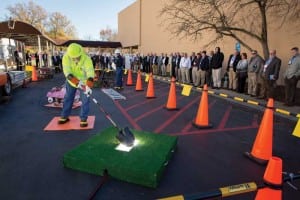
How do you think those groups of rural residents in the ’30s got together to form the co-op? Door-to-door. Talking to their neighbors about the big idea they had — a chance to make things better in their communities. The large utility corporations had money and power and initially dismissed the efforts of the Rural Electrification Administration and TVA. But those front-porch discussions led to a massive upheaval of the electric utility infrastructure, and people’s lives were made better.
Just like those early pioneers, rural residents across the state are advocates for their communities and champions for their success. Electric cooperatives are proud to be part of that ongoing effort. We’re working hard to continue to bring equity to rural Tennesseans.
Think about ways you can help your community succeed. These small towns depend on our big ideas.
